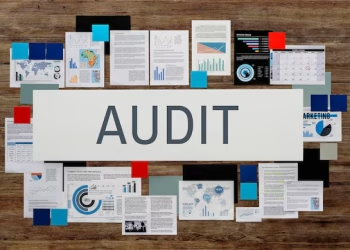In the modern world, technology is quickly becoming a game-changer in how we manage real estate. However, too many landlords are eager to learn about SEO strategies and the latest tools while ignoring the basics.
Do you still struggle to file your rental taxes properly? Are you looking for answers on the deductions landlords are entitled to? This article answers those questions and more. Stick around to get the full scope of the tax benefits of owning a rental property.
What are Main Tax Benefits and Deductions
1. Mortgage Repayments
Over 50% of homes in the American housing system have at least one mortgage. Property owners can discount their loan repayments and deduct them from their taxable income. Until you pay off your house, these payments often take up a chunk of your profits. Thus, it’s quite a relief to know interest is deductible.
2. Wages and Salary
It’s impossible to manage rental property all by yourself. At some point, you’ll need the aid of another professional, such as a lawyer, real estate agent, janitor, or property manager. You can also discount their salaries from your taxable income in that scenario. At the same time, the law makes provisions for deducting gifts, as long as they are within reason.
3. Depreciation Deduction
As houses age, they experience wear and tear, making them depreciate over time. The IRS recognizes that and lets landlords remove depreciation costs. Calculating it accurately is rather complex, but some online calculators can automatically derive the value.
4. Travel Expenses
While it’s not uncommon for landlords to live in the same building or premises as their tenants, it’s not always the case. Some landlords live in different neighborhoods or states. However, owning a rental property sometimes requires your physical presence, so they have to show up when needed. In that case, you can deduct travel expenses, including gas, tickets, and lodging, from your taxable income.
5. Taxes
Depending on your location and property type, you probably already pay taxes to your jurisdiction. You can also exclude these taxes from your income and save more money. Also, you can avoid FICA taxes if you have staff on your payroll.
6. Continuing Education
If you believe in furthering your education and gaining more knowledge to grow your rental business, you can also catch a tax break. The law allows landlords to deduct fees spent on services like investment clubs, business subscriptions, and tuition. Thus, it would be worthwhile to consider ways to improve your knowledge of real estate.
7. Home Office
As a landlord, you might need a home office to manage your affairs, especially if you own multiple properties. Since it takes money to maintain such a facility, you can deduct the expenses from your taxable income. According to the IRS, you can claim a maximum of $1500 in-home office bills.
If you’d like to know what other tax benefits and deductions you’re entitled to, you can consult with an experienced property manager.
How to Claim Tax Benefits
Fill out the Schedule E form
Following IRS procedure, if you own rental property, you’re expected to fill out form 1040, schedule E. This section allows taxpayers to report their rental income and expenses. After including the correct property information, you can enter both one-off and ongoing costs.
Keep Appropriate Records
For transparency’s sake, keeping records of your income and expenses is always better. These documents make auditing your rental property easier and making returns if necessary.
Record-Keeping Tips
Create a Digital Backup
Creating a digital backup is a great record-keeping tip because it offers you more flexibility. You can save e-receipts or correspondence to the cloud and access it from any device available. It also saves you from the trouble of keeping bulky physical files, which are more prone to damage.
Update Your Records Regularly
Updating your records regularly makes it easier to keep up with your incoming and outgoing expenses. For instance, even with a good memory, you might struggle to remember what you paid a contractor for fixing a window six months ago. Hence, updating your files or spreadsheet at least quarterly would be best.
Conclusion
Since real estate is a capital-intensive investment, it helps to know when you can catch a break. There are several tax benefits of owning a rental property, and using them to your advantage can help you cut costs significantly. Also, knowing how to claim tax benefits can help you avoid tax litigation and easily claim a rebate. The process is as easy as appropriately filling your income and expenses in the Schedule E form.
Creating a digital backup and frequent record updates should make it easier to claim the tax benefits you deserve. However, you can contact a professional property management company if you still struggle to track your expenses or identify what qualifies for the deduction.















